#Birgit Nordin
Text
"Tystnad! Tagning! Trollflöjten!" (1975) - Katinka Faragó & Måns Reuterswärd
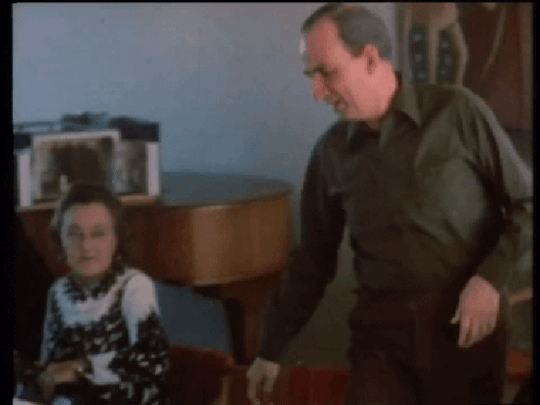
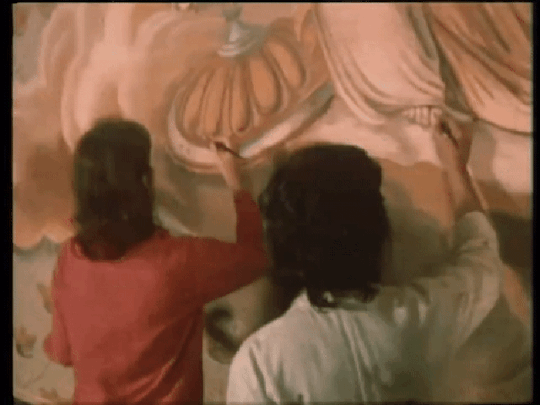
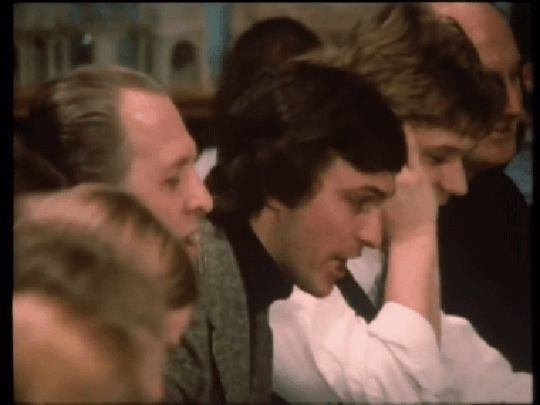
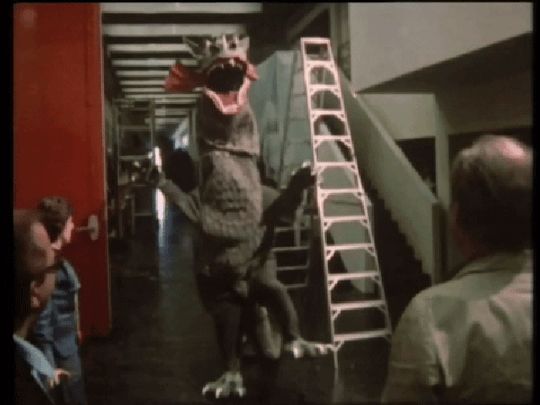
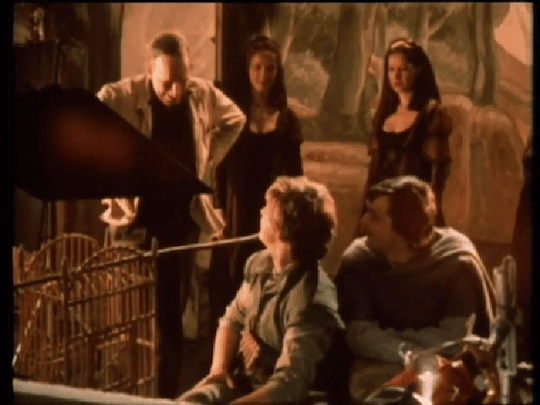
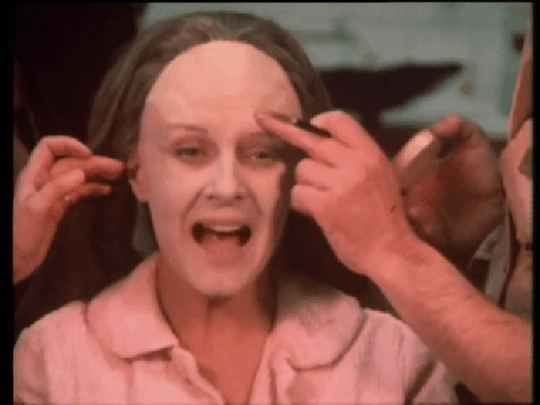
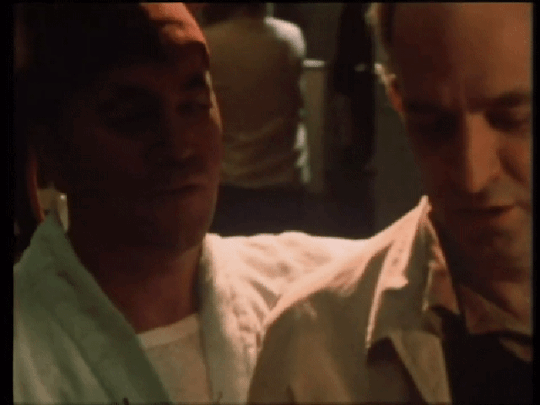
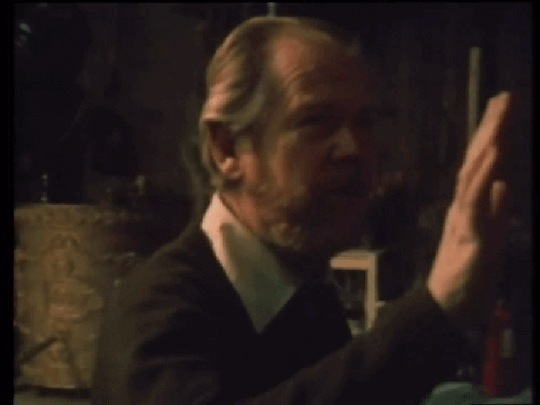
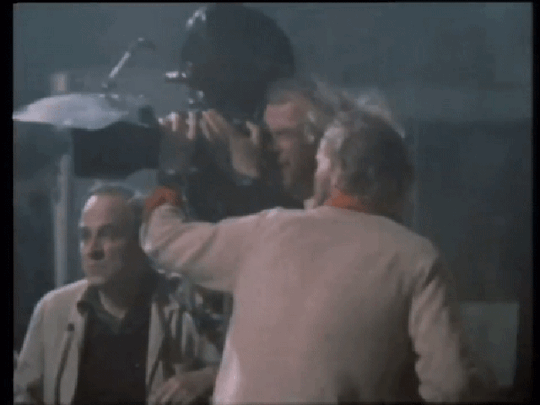
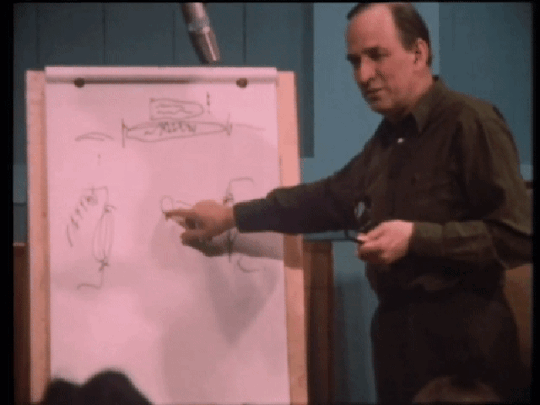
Films I've watched in 2024 (50/?)
I have so much love for Bergman for making proper behind-the-scenes documentaries for several of his films. This one is about his 1975 version of Mozart's "Trollflöjten" ("Die Zauberflöte"/"The Magic Flute").
#films watched in 2024#Tystnad! Tagning! Trollflöjten!#Ingmar Bergman#Josef Köstlinger#Håkan Hagegård#Birgit Nordin#Ragnar Ulfung#Sven Nykvist#The Magic Flute#Die Zauberflöte#documentary#motionpicturelover's gifs
0 notes
Text
Opera on YouTube
I've shared links to complete opera performances before, but I love to share them, so I thought I'd make a few masterposts.
These list are by no means the only complete filmed performances of these operas on YouTube, but I decided that ten links for each opera was enough for now.
By the way, some of the subtitles are just a part of the video, while others require you to click CC to see them.
Die Zauberflöte (The Magic Flute)
Hamburg Philharmonic State Opera, 1971 (Nicolai Gedda, Edith Mathis, William Workman, Christina Deutekom, Hans Sotin; conducted by Horst Stein; English subtitles)
Ingmar Bergman film, 1975 (Josef Köstlinger, Irma Urrila, Håkan Hagegård, Birgit Nordin, Ulrik Cold; conducted by Eric Ericson; sung in Swedish; English subtitles)
Salzburg Festival, 1982 (Peter Schreier, Ileana Cotrubas, Christian Bösch, Edita Gruberova, Martti Talvela; conducted by James Levine; Japanese subtitles)
Bavarian State Opera, 1983 (Francisco Araiza, Lucia Popp, Wolfgang Brendel, Edita Gruberova, Kurt Moll; conducted by Wolfgang Sawallisch; English subtitles)
Metropolitan Opera, 1991 (Francisco Araiza, Kathleen Battle, Manfred Hemm, Luciana Serra, Kurt Moll; conducted by James Levine; English subtitles)
Paris Opera, 2001 (Piotr Beczala, Dorothea Röschmann, Detlef Roth, Desirée Rancatore, Matti Salminen; conducted by Ivan Fischer; no subtitles)
Royal Opera House, Covent Garden, 2003 (Will Hartman, Dorothea Röschmann, Simon Keenlyside, Diana Damrau, Franz Josef Selig; conducted by Colin Davis; no subtitles) – Act I, Act II
La Monnaie, Brussels, 2005 (Topi Lehtipuu, Sophie Karthäuser, Stephan Loger, Ana Camelia Stefanescu, Harry Peeters; conducted by René Jacobs; French subtitles)
Kenneth Branagh film, 2006 (Joseph Kaiser, Amy Carson, Benjamin Jay Davis, Lyubov Petrova, René Pape; conducted by James Conlon; sung in English)
San Francisco Opera, 2010 (Piotr Beczala, Dina Kuznetsoca, Christopher Maltman, Erika Miklósa, Georg Zeppenfeld; conducted by Donald Runnicles; English subtitles)
La Traviata
Mario Lanfrachi studio film, 1968 (Anna Moffo, Franco Bonisolli, Gino Bechi; conducted by Giuseppe Patané; English subtitles)
Glyndebourne Festival Opera, 1987 (Marie McLaughlin, Walter MacNeil, Brent Ellis; conducted by Bernard Haitink; Italian and Portuguese subtitles)
Teatro alla Scala, 1992 (Tiziana Fabbricini, Roberto Alagna, Paolo Coni; conducted by Riccardo Muti; English subtitles)
Royal Opera House, Covent Garden, 1994 (Angela Gheorghiu, Frank Lopardo, Leo Nucci; conducted by Georg Solti; Spanish subtitles)
Teatro Giuseppe Verdi, 2003 (Stefania Bonfadelli, Scott Piper, Renato Bruson; conducted by Plácido Domingo; Spanish subtitles)
Salzburg Festival, 2005 (Anna Netrebko, Rolando Villazón, Thomas Hampson; conducted by Carlo Rizzi; no subtitles)
Los Angeles Opera, 2006 (Renée Fleming, Rolando Villazón, Renato Bruson; conducted by James Conlon; English subtitles)
Opera Festival St. Margarethen, 2008 (Kristiane Kaiser, Jean-Francois Borras, Georg Tichy; conducted by Ernst Märzendorfer; English subtitles)
Teatro Real di Madrid, 2015 (Ermonela Jaho, Francesco Demuro, Juan Jesús Rodríguez; conducted by Renato Palumbo; English subtitles)
Teatro Massimo, 2023 (Nino Machiadze, Saimir Pirgu, Roberto Frontali; conducted by Carlo Goldstein; no subtitles)
Carmen
Herbert von Karajan studio film, 1967 (Grace Bumbry, Jon Vickers; conducted by Herbert von Karajan; English subtitles)
Vienna State Opera, 1978 (Elena Obraztsova, Plácido Domingo; conducted by Carlos Kleiber; English Subtitles)
Francisco Rosi film, 1982 (Julia Migenes, Plácido Domingo; conducted by Lorin Maazel; English subtitles)
Metropolitan Opera, 1987 (Agnes Baltsa, José Carreras; conducted by James Levine; English subtitles)
London Earls Court Arena, 1989 (Maria Ewing, Jacque Trussel; conducted by Jaques Delacote; English subtitles)
Royal Opera House, Covent Garden, 1991 (Maria Ewing, Luis Lima; conducted by Zubin Mehta; English subtitles) – Acts I and II, Acts III and IV
Arena di Verona, 2003 (Marina Domashenko, Marco Berti; conducted by Alain Lombard; Italian subtitles)
Royal Opera House, Covent Garden, 2006 (Anna Caterina Antonacci, Jonas Kaufmann; conducted by Antonio Pappano; English subtitles) – Acts I and II, Acts III and IV
Metropolitan Opera, 2010 (Elina Garanca, Roberto Alagna; conducted by Yannick Nézet-Séguin; English subtitles) – Acts I and II, Acts III and IV
Opéra-Comique, 2023 (Gaëlle Arquez, Frédéric Antoun; conducted by Louis Langrée; English subtitles)
La Bohéme
Franco Zeffirelli studio film, 1965 (Mirella Freni, Gianni Raimondi; conducted by Herbert von Karajan; English subtitles)
Metropolitan Opera, 1977 (Renata Scotto, Luciano Pavarotti; conducted by James Levine; no subtitles)
Teatro alla Scala, 1979 (Ileana Cotrubas, Luciano Pavarotti; conducted by Carlos Kleiber; no subtitles)
Opera Australia, 1993 (Cheryl Barker, David Hobson; conducted by Julian Smith; Brazilian Portuguese subtitles)
Teatro Regio di Torino, 1996 (Mirella Freni, Luciano Pavarotti; conducted by Daniel Oren; Italian subtitles)
Teatro alla Scala, 2003 (Cristina Gallardo-Domâs, Marcelo Alvarez; conducted by Bruno Bartoletti; Spanish subtitles)
Zürich Opera House, 2005 (Cristina Gallardo-Domâs, Marcello Giordani; conducted by Franz Welser-Möst; no subtitles)
Robert Dornhelm film, 2009 (Anna Netrebko, Rolando Villazón; conducted by Bertrand de Billy; no subtitles)
Opera Australia, 2011 (Takesha Meshé Kizart, Ji-Min Park; Shao-Chia Lü; no subtitles)
Sigulda Opera Festival, 2022 (Maija Kovalevska, Mihail Mihaylov; conducted by Vladimir Kiradjiev; English subtitles)
#opera#youtube#complete performances#die zauberflöte#the magic flute#la traviata#carmen#la boheme#wolfgang amadeus mozart#giuseppe verdi#georges bizet#giacomo puccini
25 notes
·
View notes
Photo

The Magic Flute (Ingmar Bergman, 1975)
Cast: Josef Köstlinger, Irma Urrila, Håkan Hagegård, Ulrik Cold, Birgit Nordin, Ragnar Ulfung, Britt-Marie Aruhn, Kirsten Vaupel, Birgitta Smiding, Erik Sædén. Screenplay: Ingmar Bergman, based on an opera by Wolfgang Amadeus Mozart and the libretto by Emanuel Schikaneder translated by Alf Henrikson. Cinematography: Sven Nykvist. Produ. tion design: Henny Noremark. Film editing: Siv Lundgren. Costume design: Karin Erskine, Henny Noremark.
For me, Ingmar Bergman's The Magic Flute is a kind of linguistic palimpsest, with the English subtitles* superimposed on the Swedish translation of the German original. Not that I know Swedish, but I've picked up enough of the sound of the language from watching movies that I can recognize a word or two. And I do know the German libretto fairly well from following along on recordings, so that when a singer begins a familiar aria, I hear the German in my mind's ear along with the Swedish being sung and then refracted through the words on screen. You'd think this would be distracting, but it isn't -- in fact, it only helps me appreciate the care Bergman took in making the film. Opera is not designed for the movies: It has moments of tightly choreographed action after which people stand still to sing, and you want more out of a movie than starts and stops. But what Bergman does so brilliantly is to supply close-ups and cuts that give the film an energy, often following the rhythms of Mozart's music. We don't get close-ups in the opera house -- thank god, because singing opera does unfortunate things to the singers' faces -- but Bergman has wisely chosen good-looking singers and had them speak-sing along with a previously recorded version, so there's little facial distortion. The Magic Flute is a problematic opera: Emanuel Schikaneder's libretto is a mess that never quite resolves the relationship between Sarastro, the Queen of the Night, and Pamina. Bergman solves this by creating one: In his version, Pamina (Irma Urrila) is the daughter of Sarastro (Ulrik Cold) and the Queen (Birgit Nordin), and he has abducted the girl because he doesn't trust his ex to raise her right. There's no justification for this in Schikaneder's text, and even Bergman hasn't quite resolved the problem of why Sarastro lets Pamina be guarded by Monastatos (Ragnar Ulfung), whose chief aim seems to be to sleep with the young woman. Nor has Bergman solved the misogyny and racism of Schikaneder's libretto. Women come in for a good deal of disapproval in the opera, and Bergman hasn't eliminated that. Monastatos is tormented by the fact that he's black -- a Moor -- although he is given a kind of Shylockian moment of self-justification, and even Papageno (Håkan Hagegård), who is the pragmatic, commonsense type, reflects that there are black birds, so why not black people. (I'm not entirely sure that line of Papageno's even makes it into the Bergman film.) Most productions today gloss over these antique prejudices as best they can, however, turning The Magic Flute into a kind of fairy tale for the kids, with colorful sets and cute forest animals dancing to Tamino's flute. Bergman is no exception in this regard: The film is set in the theater, and he opens with a close-up of a lovely young girl** with a kind of Mona Lisa smile, and follows her eye line as she gazes at the images painted on the curtain, then scans the other faces in the audience, old and young and of various ethnicities. The film, which like his other childhood-centered classic, Fanny and Alexander (1982), was made originally for television, is certainly one of Bergman's warmest.
*I don't know who did the English version, but it's a very good singing translation, not just a literal prose version of the original.
**She has been identified as Helene Friberg, who had bit parts in other Bergman films.
2 notes
·
View notes
Photo
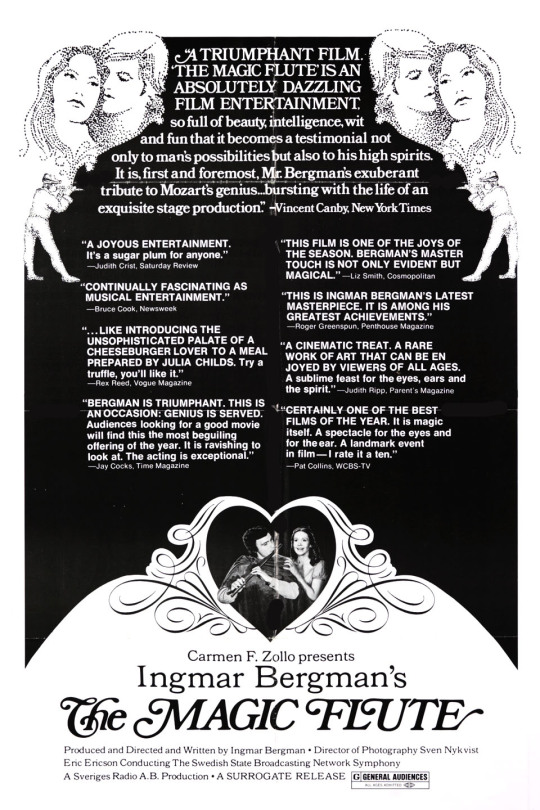
#the magic flute#josef köstlinger#irma urrila#håkan hagegård#elisabeth erikson#ulrik cold#birgit nordin#ragnar ulfung#erik saedén#kirsten vaupel#birgitta smiding#britt marie aruhn#erland von heijne#urban malmberg#ansgar krook#ingmar bergman#1975
1 note
·
View note
Photo
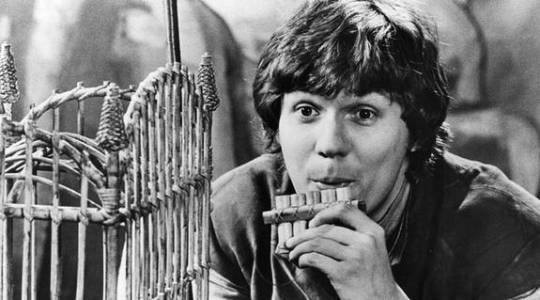
Wir eröffnen das kultivierte Musikprogramm im Beethovenjahr mit Mozarts allseits beliebten Singspiel Die Zauberflöte. Auf Schwedisch. Da dies einer der ersten Filme ist, die gesehen zu haben ich mich erinnere, und wahrscheinlich überhaupt die erste Oper, wundere ich mich bis heute, wenn die Zauberflöte nicht auf schwedisch gesungen wird, und keine Tafeln mit weisen Sinnsprüchen ins Bild kommen. Außerdem hatte ich jahrzehntelang eine außerordentlich naive Vorstellung vom Filmschaffen Ingmar Bergmans. Prinz Tamino und Pamina könnten es ganz reizend haben, geraten aber in die Fänge einer abstrusen, sinnes-, frauen- und mohrenfeindlichen Sekte, die behauptet, die Weisheit und Friedfertigkeit gepachtet zu haben, was sie allerdings nicht davon abhält, Andersdenkende drakonisch zu bestrafen. Dagegen sind die Bedürfnisse des beharrlich als Tunichtgut dargestellten reizenden Vogelfängers Papageno erfrischend nachvollziehbar.
#Trollflöjten#Håkan Hagegård#Josef Köstlinger#Irma Urrila#Birgit Nordin#Ulrik Cold#Elisabeth Erikson#Film gesehen#Ingmar Bergman#Wolfgang Amadeus Mozart#Die Zauberflöte#Oper
2 notes
·
View notes
Text
5.27.19
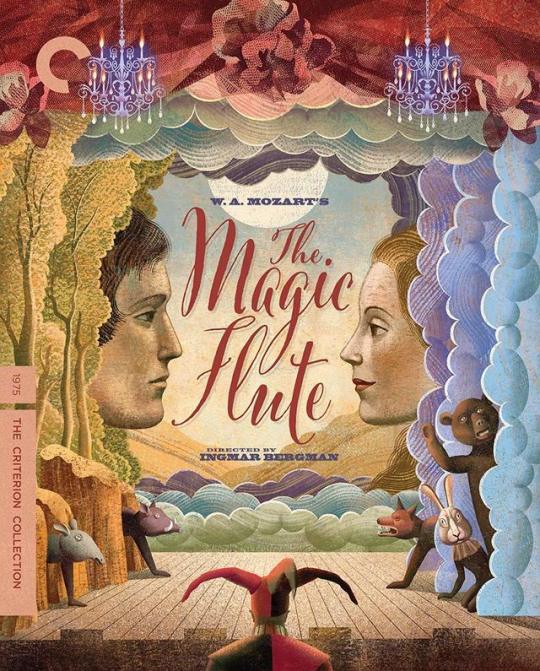
#film#letterboxd#watched#ingmar bergman#the magic flute#mozart#josef köstlinger#irma urrila#håkan hagegård#elisabeth erikson#britt-marie aruhn#kirsten vaupel#birgitta smiding#ulrik cold#birgit nordin#ragnar ulfung#erik sædén#gösta prüzelius#jerker arvidson#hans johansson#erland von heijne#ansgar krook#ingrid bergman#sonja lund#liv ullmann
2 notes
·
View notes
Photo
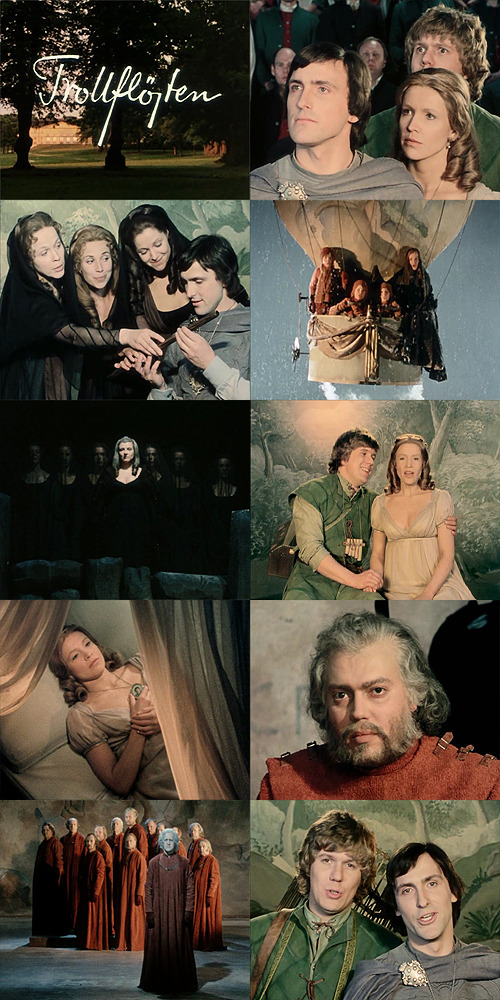
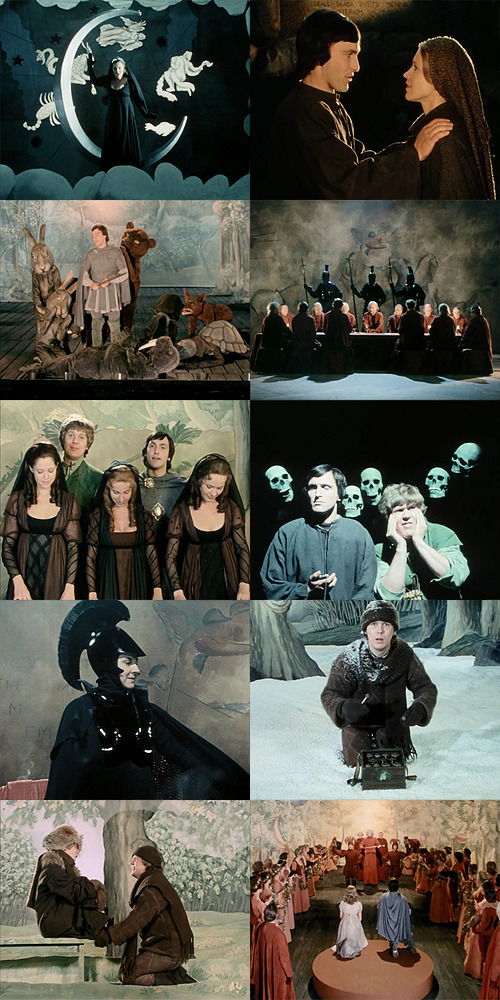
Films Watched in 2018:
46. Trollflöjten/The Magic Flute (1975) - Dir. Ingmar Bergman
#Trollflöjten#The Magic Flute#Ingmar Bergman#Josef Köstlinger#Irma Urrila#Hakan Hagegard#Elisabeth Erikson#Ulrik Cold#Birgit Nordin#Ragnar Ulfhung#Wolfgang Amadeus Mozart#Opera#Films Watched in 2018#My Edits#My Post
15 notes
·
View notes
Photo
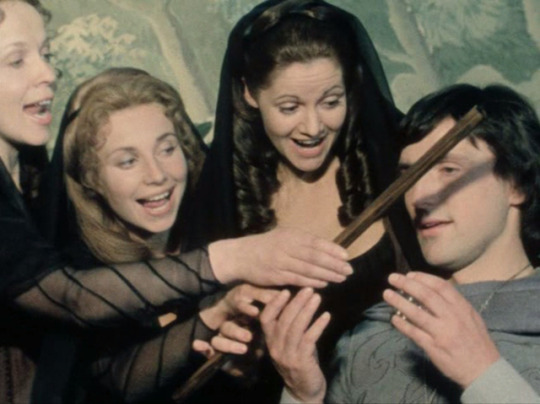
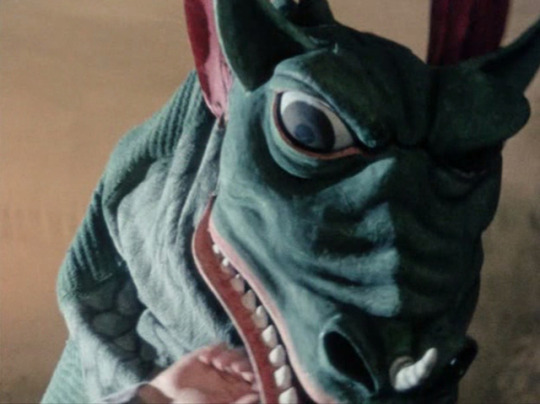
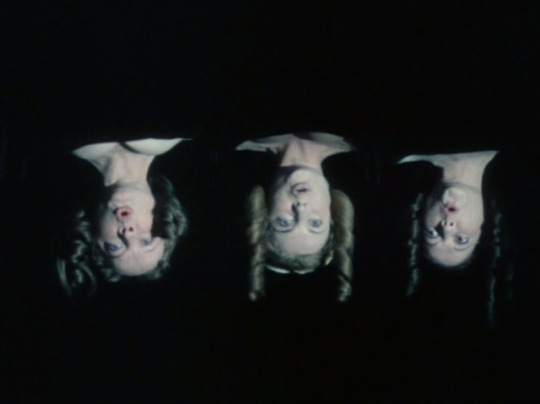
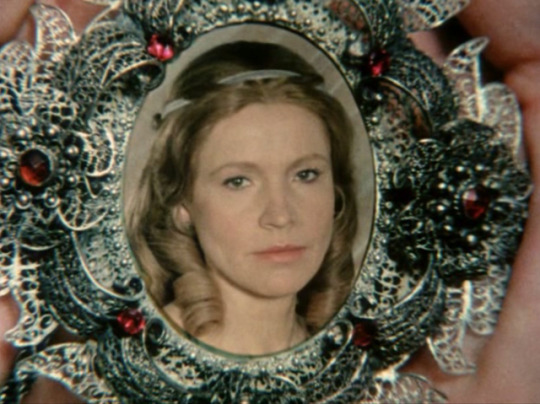
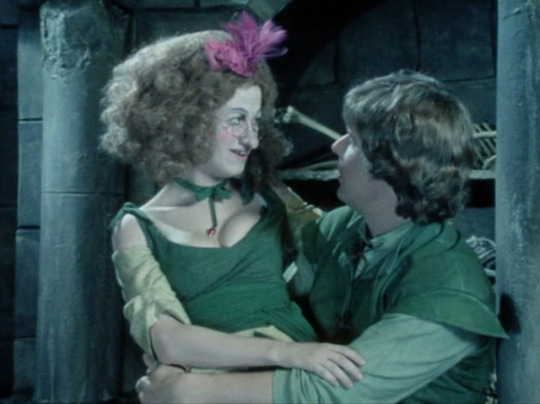
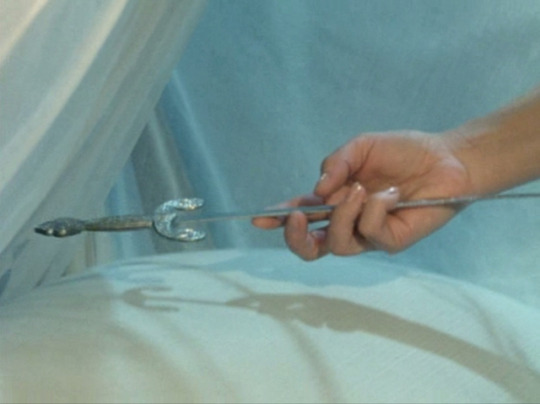
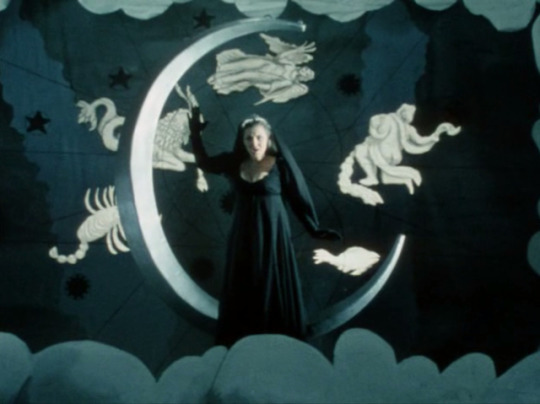
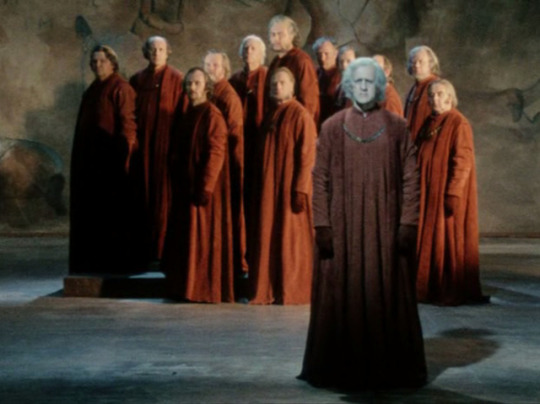
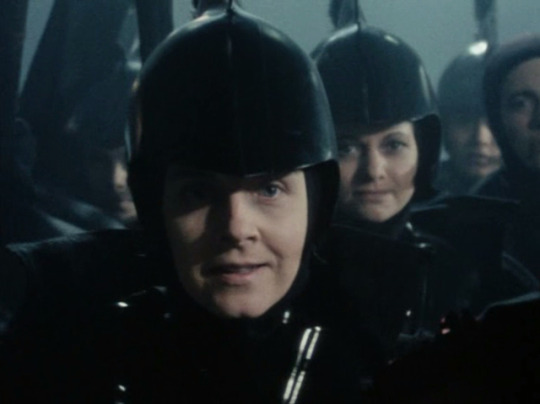
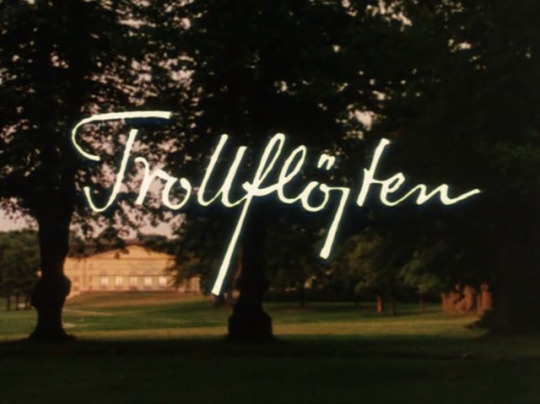
Trollflöjten (The Magic Flute) | Ingmar Bergman | 1975
#Ingmar Bergman#Bergman#Trollflöjten#The Magic Flute#Mozart#1975#Birgitta Smiding#Kirsten Vaupel#Britt-Marie Aruhn#Josef Köstlinger#Irma Urrila#Elisabeth Erikson#Håkan Hagegård#Birgit Nordin
317 notes
·
View notes
Photo
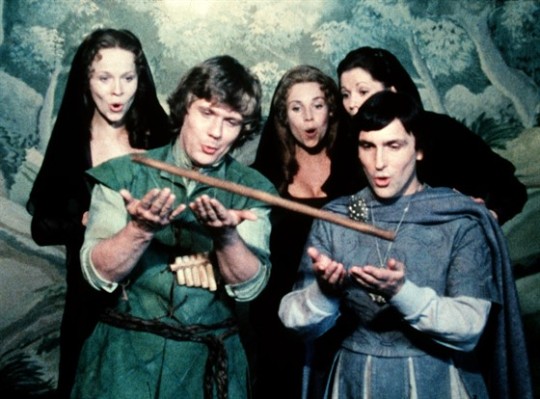
NOTE: Despite the fact The Magic Flute was originally released on Swedish television on January 1, 1975, it debuted as a theatrical film in the United States later that year in November. As per the rules I set out for this blog, Bergman’s The Magic Flute will be treated as a theatrical film.
The Magic Flute (1975, Sweden)
I imagine that when some people read that this film review concerns an adaptation of an opera, they will stop reading at the word, “opera”. As someone who was taught classical music from an early age, I get it. Opera seems inaccessible, and a several-minute aria just to get a plot point across can seem daunting (not just for the audience, but the performer too). But as with any artistic medium, there will always be points of entry for newcomers. Ingmar Bergman’s 1975 adaptation of Wolfgang Amadeus Mozart’s opera The Magic Flute is one of them. The Magic Flute is one of the more accessible and most performed operas in Western classical music, and it just so happened to be Ingmar Bergman’s favorite. Bergman saw the opera when he was twelve years old, leaving an immediate impression. Unable to afford the record, he attempted to recreate The Magic Flute with marionettes at home. By the mid-1970s and having cinematic and stage production experience in his oeuvre, Bergman dared to imagine filming his favorite opera.
There are numerous cinematic opera adaptations. But they are underseen and largely unavailable to North American viewers – I am not including filmed opera performances in this distinction (e.g. the Metropolitan Opera’s popular live feeds that are presented in movie theaters and public television). Invariably, Bergman’s The Magic Flute is mentioned on the rare occasions when opera films are discussed. Sometimes, due to contempt for opera or a lack of understanding about classical music, it is the only such opera film discussed, and usually never from a musical lens.
In this adaptation, Bergman attempts to meld the distinct artifices of cinema and opera together. The viewer is never transported to a fantastical world, as the film possesses no “fourth wall” to begin with. We see an audience – look closely and you will see Bergman and cinematographer Sven Nykvist in the audience – waiting in anticipation during the overture, and the action takes place on what appears to be a homely community opera house. On occasion, we will see the performers backstage preparing for their musical entrances. When their performance begins, they inhabit the world of the opera.
This peculiar dynamic Bergman creates is less believable on a more gargantuan stage. The stage’s production design and deliberately low-budget (but charming) costume design suggests we are experiencing a performance given by a small community opera company. La Scala this is not, nor is it the Met or Paris Opera. Bergman wished to shoot the film at the Drottningholm Palace Theatre in Stockholm, a small eighteenth-century theater that still uses mechanisms dating back to its inception. Unfortunately, that theater was deemed too fragile for film equipment. Nevertheless, Bergman and production designer Henny Noremark (who also served as co-costume designer along with Karin Erskine) concocted a workaround. On a soundstage at the Swedish Film Institute, the production design team painstakingly crafted a facsimile of the Drottningholm Palace Theatre’s interior. The Magic Flute appears to be an inexpensive production, but it is anything but. The stage is intimate, inviting, personable.
In brief, Mozart’s opera is set in Egypt and concerns a mother-daughter dispute rife with misunderstanding. The protagonist, Prince Tamino (Josef Köstlinger), is contacted by the Queen of the Night (Birgit Nordin). She asks him to free her daughter Pamina (Irma Urrila) from the clutches of a high priest named Sarastro (Ulrik Cold; doesn’t that sound like a villainous name?). After being shown a portrait of Pamina, Tamino falls instantly in love with her – that’s opera logic, you know. Tamino is joined in his adventures by Papageno (Håkan Hagegård), an overly talkative bird-catcher dressed like a bird. But Tamino will learn more about Sarastro’s priestly order and becomes interested in joining. The Magic Flute has been interpreted as heavily influenced by Masonic themes, and modern analyses clash as to whether its portrayal of the Queen of the Night is misogynistic (see: Sarastro’s belief that Pamina should not be subject to the Queen’s feminine manipulations) or proto-feminist.
Also featured are the conniving Monostatos (Ragnar Ulfung) and, in the second act, Papagena (Elisabeth Erikson). The Magic Flute benefits from an excellent recording by the Swedish Radio Symphony Orchestra under the direction of conductor Eric Ericson.
Opera films tend to adhere closely to the work composer and librettist. Bergman exercises some liberties with Mozart’s music and Emanuel Schikaneder’s libretto*. Instead of the original German, this film uses a Swedish-language libretto by the poet Alf Henrikson (this Swedish-language version debuted at the Royal Swedish Opera in 1968). No offense against the Swedish language, but this Swedish-language version of The Magic Flute makes the musical phrasing awkward. Mozart’s opera was composed with German in mind. German may not be a listenable as Italian in an operatic setting (it could be worse, it could be English – as in the otherwise excellent 1951′s The Tales of Hoffman, adapted from Jacques Offenbach’s opera of the same name), but this should have been Bergman’s first choice.
The decision to cast singers with sweeter voices rather than full, unamplified ones assumes that an audience cannot tolerate a soprano’s high notes. "Der Hölle Rache kocht in meinem Herzen" – commonly known as the Queen of the Night aria – demands full-bodied womanly rage to sing. The soprano should sing this forcefully, but not harshly. It feels like Bergman is asking Birgit Nordin to hold back her vocals during the aria (which also sounds rushed in the second half). Whether in an opera or an operatic adaptation for film, this is not an aria that should be sung with anything less than full power. Bergman should let Nordin sing this aria as it should be sung. To do so invites a starker contrast between those few minutes and the rest of the film – a show-stopper as Mozart intended it to be. Nevertheless, Bergman’s decision to prioritize acting over musicality – however it grates upon my senses – works for all the other roles. Nykvist’s cinematography pulls close to the actors’ faces, demanding more facial acting from the cast (who are all lip-syncing) than they might be used to. The cast succeeds in this challenge, approaching a type of acting they are unaccustomed to.
The setting of Bergman’s Magic Flute strips away much of the opera’s original Egyptian setting and settles for a vaguely European design. The Queen of the Night-Sarastro conflict becomes a parental dispute, as Bergman makes Sarastro Pamina’s father. A few trios in Act II have been eliminated. Also in Act II and to the film’s detriment, Bergman changes the order of appearance of two Papageno-centric scenes to the point where they no longer make any narrative sense.
Where Bergman’s The Magic Flute triumphs is its representation of the nature of live opera (and, by extension, live theater). When one experiences an opera or theater, everything onstage is an interpretation, a living fiction. The events onstage and the music transport one from reality, without ever truly leaving that reality. Moments in which Swedish text of the libretto appears in front of the actors (sometimes held by the actors themselves) precede the creation and widespread use of surtitles in opera houses today. By making somewhat indistinguishable the actors’ transition between the “real” and operatic worlds (during the intermission’s last moments, we see actors smoke a cigarette and two others playing chess), Bergman shows that the viewer is as much a part of the performance. We assign as much meaning to the unreality of an opera as the actors. The whimsical comedy of The Magic Flute – one filled with imperfect protagonists and subplots that never quite cohere – makes Bergman’s metatextual commentary more apparent and approachable.
The Magic Flute followed two heavy Bergman dramas in Cries and Whispers (1972) and Scenes from a Marriage (1973). Having watched twelve of his forty-five feature films, The Magic Flute is, by some distance, the liveliest Bergman film I have seen. I do not expect any others to be as light, as comedic as this – the key difference might be that Bergman is adapting material, rather than using an original screenplay of his. It is refreshing to see an Ingmar Bergman without a gripping existential crisis, mentally disturbed characters soliloquizing their plights.
In The Magic Flute, the relationship between our lived reality and theatrical artifice holds for every person that engages with the performing arts. Debuting in Vienna in 1791, The Magic Flute, Mozart’s final opera, was not composed for aristocratic patrons, but commoners. Almost two centuries later, the in-film audience of Bergman’s adaptation is comprised of various genders and races. That universality of the theatrical experience is reflected in their faces, interspersed on occasion alongside scene changes and still moments. The universality of Western classical music, in this case Mozart’s, is etched in their gazes. Nykvist’s camera keeps returning to one young girl in particular. She is always smiling, obviously enchanted by The Magic Flute. Perhaps she is feeling things akin to Bergman the first time he experienced The Magic Flute – unburdened by cynicism, more accepting of unreality.
My rating: 7.5/10
^ Based on my personal imdb rating. Half-points are always rounded down. My interpretation of that ratings system can be found in the “Ratings system” page on my blog (as of July 1, 2020, tumblr is not permitting certain posts with links to appear on tag pages, so I cannot provide the URL).
For more of my reviews tagged “My Movie Odyssey”, check out the tag of the same name on my blog.
*A librettist is the opera term for a lyricist. The Magic Flute is a Singspiel opera, which means it contains snippets of dialogue. Schikaneder wrote both the lyrics and dialogue.
#The Magic Flute#Trollflöjten#Mozart#Ingmar Bergman#Josef Köstlinger#Håkan Hagegård#Birgit Nordin#Irma Urrila#Ragnar Ulfung#Ulrik Cold#Britt Marie Aruhn#Kirsten Vaupel#Birgitta Smiding#Elisabeth Erikson#Emanuel Schikaneder#Alf Henrikson#Sven Nykvist#TCM#My Movie Odyssey
1 note
·
View note
Text
Amelia, Aase Nordmo-Lövberg i Gustaf III, Ragnar Ulfung
Mamsell Arfvidsson, Barbro Ericson
Otto, Birgit Nordin
Amelia, Aase Nordmo-Lövberg i Gustaf III, Ragnar Ulfung
Greve Horn: Bo Lundborg, Greve Holberg: Erik Saedén, Amelia: Aase Nordmo-Lövberg, Kapten Anckarstrõm: Arne Tyrén
En aquesta immersió gradual cap a l’aprofundiment de “Un ballo in maschera“, la propera òpera que es representarà al Gran Teatre del Liceu (a partir del 7 d’octubre), avui us proposo “Maskeradbalen” una versió per a la televisió sueca (per tant cantada en suec), en blanc i negre (com tantes altres coses d’aquests dies) i que ambienta l’acció escènica tal i com Verdi havia pensat abans de la censura (maleïda censura d’ahir i d’avui) en el regnat del rei Gustau III de Suècia.
La versió es va gravar l’any 1965 i compta amb magnífics cantants com és habitual a Suècia, un país petit que ha nodrit la història de l’òpera de personalitats i artistes de gran vàlua.
Un magnífic tenor líric que avui es disputarien tots els teatres i festivals Ragmar Ulfung, us Otto (l’Oscar en italià) degudament crispant i precís en els seus “insofribles picats” Birgit Nordin, un baríton d’una solidesa envejable i d’elegant línia i bon i rotund registre, Erik Saedén; una Arfvidsson (l’Ulrica) de ressonàncies parsifalesques bayreuthianes Barbro Ericson que llueix un registre greu del tot convincent i degudament acontraltats i una Amelia que és potser que la que més pateix la manca d’italianitat però que és posseïdora d’una veu de lírica sòlida, penetrant, segura i ampli registre tot i que mostra problemes en l’emissió i l’atac d’alguns agutsun goig vocal el de Aase Nordmo-Lövberg.
Avui aquest equip vocal ens feria molta falta per a un ballo o per a tantes obres en les que trobem a faltar, a banda de les veus adequades, una manera de cantar i transmetre molt més emocional, i tot i que a l’any 1965 haguéssim dit que aquests cantants eren freds, ara amb la perspectiva que tenim de l’evolució vocal i interpretativa de l’òpera podem afirmar sense por a errar-la que tècnicament i sempre generalitzant, ara es canta millor però sense el sentiment i l’entrega amb la qual tampoc fa tant, es vivíem les representacions a dalt de l’escenari.
Bona direcció d’orquestra i una posada en escena per a la televisió prèvia a la modernització interpretativa i que segueix la tradició fil per randa
Giuseppe Verdi
MASKERADBALEN
Libretto, Antonio Somma (Eugene Scribe) versió en suec
Gustaf III, Ragnar Ulfung
Greve Holberg, Erik Saedén
Amelia, Aase Nordmo-Lövberg
Otto, Birgit Nordin
Mamsell Arfvidsson, Barbro Ericson
Greve Horn, Bo Lundborg
Kapten Anckarstrõm, Arne Tyrén
Matrosen, Paul Höglund
Biskopen, Arne Ohlson
Betjãnten, Sven Erik Vikström
Kör och Balett från Kungliga Teatern
Radioorkestern
Director musical: Sixten Ehrling
Director escènic: Göran Gentele
Svensk tolkning och bearbetning, Erik Lindegren
Dekor och kostym, Sven Erik Skawonius, Bengt Hellgren
Koreografi, Mary Skeaping
Svensk TV / Kungliga Teatern 1965
Avui teniu una oportunitat de reviure aquella manera de cantar i d’una escola de cant nòrdica que ens ha proporcionat rellevants i reclinatoriables cantants que mai ha deixat de sorprendre’ns, i que en aquest cas encara que la italianitat de l’estil no hi és i que el text en suec sempre és un distanciament per a molts injustificable, aquest “Maskeradbalen” que protagonitza l’apunt, és una joia que dubto que decebi a algú, al menys aquesta no ha estat mai la intenció i per això en parlo aquí, on en els propers dies aniré insistint en la preparació prèvia en aquesta òpera que inicia el període de maduresa del millor Verdi.
VERDI: MASKERADBALEN (Ulfung,Saedén,Nordmo-Lövberg, Ericson;Gentele-Ehrling) En aquesta immersió gradual cap a l'aprofundiment de "Un ballo in maschera", la propera òpera que es representarà al…
#Aase Nordmo-Lövberg#Arne Ohlson#Arne Tyrén#Barbro Ericson#Birgit Nordin#Bo Lundborg#Erik Saedén#Göran Gentele#Giuseppe Verdi#Kör och Balett från Kungliga Teatern Radioorkestern#Maskeradbalen#Paul Höglund#Ragnar Ulfung#Sixten Ehrling#Sven Erik Vikström#TV#Un Ballo in Maschera
0 notes
Text
February 22 in Music History
1628 German organist and composer Samuel Scheidt becomes music director at Marienkirche, Halle.
1631 FP of Ben Johnson’s Chloridia for the Stuart Court.
1642 FP of Luigi Rossi's opera Il Palazzo Incantato d'Atlante , at the Barberini Theater in Rome.
1745 Birth of Portugese composer João de Sousa Carvahlo in Estremoz.
1749 Birth of musicologist Johann Nikolaus Forkel.
1779 Birth of Swedish composer Joachim Nikolas Eggert in Gingst, Rügen.
1793 Death of baritone Antonio Casaccia.
1817 Birth of Danish composer Niels W. Gade in Copenhagen.
1834 Birth of German harpist, composer Albert Heinrich Zabel in Berlin.
1846 Death of Dutch composer Carolus Antonius Fodor in Amsterdam.
1847 Birth of tenor Dmitri Uzatov.
1860 Birth of American composer John Samuel Duss.
1866 Birth of baritone Ferruccio Corradetti in San Severino.
1868 Birth of Polish pianist Antoinette Szumowska.
1870 Birth of German composer George Washington Pittrich in Dresden.
1870 Birth of tenor Albert Reiss in Berlin.
1872 Birth of baritone Nicola Geisse-Winkel in Bad Ems.
1876 Birth of Italian tenor Giovanni Zenatello in Vienna.
1878 FP of Tchaikovsky's Fourth Symphony in St. Petersburg.
1881 Birth of American composer James Reese Europe.
1881 FP of Max Bruch's Scottish Fantasy Op. 46, composer conducting; Joseph Joachim as the soloist, in Liverpool.
1882 Death of soprano Catherine Stephens.
1884 Birth of English composer and pianist York Bowen.
1884 Birth of soprano Tamaki Miura in Tokyo.
1890 Birth Ukranian of pianist Benno Moisewitsch in Odessa.
1891 Death of soprano Josephine De Reszke.
1903 Birth of baritone Robert Weede in Baltimore.
1903 Death of Austrian composer Hugo Wolf in Vienna insane asylum.
1904 Birth of tenor Jose Soler.
1905 Birth of Mexican composer Luis Meneses-Sandi in Mexico City.
1906 Birth of pianist Adele Marcus.
1907 FP of Ravel's Introduction and Allegro for harp in Paris.
1910 Birth of bass-baritone Hervey Alan in Whitstable.
1912 Birth of soprano Paula Brivkaine in Valdemarplis.
1925 Birth of soprano Gigliola Frazzoni in Bologna.
1926 American debut of pianist Walter Gieseking. Aeolian Hall, NYC.
1927 Birth of American composer David Ahlstrom.
1927 Birth of Canadian bassoonist George Zukerman.
1927 Birth of mezzo-soprano Renate Haertel in Meerane.
1927 Birth of soprano Kyoko Ito in Kakegawa, Japan.
1929 Birth of soprano Anny Schlemm in Germany.
1929 Birth of soprano Ilse Ludwig in Bautzen.
1930 Birth of American soprano Marni Nixon in Altadena CA.
1932 Death of soprano Johanna Gadski.
1934 Birth of soprano Birgit Nordin in Neder Kalix, Sweden.
1934 Birth of American bass Thomas Paul in Chicago.
1938 FP of D. Kabalevsky's opera Colas Breugnon in Leningrad.
1939 Birth of baritone Silvano Carroli in Venice.
1941 Death of tenor Henri Fabert.
1941 FP of Paul Creston's Symphony No. 1, in NYC.
1941 FP of Morton Gould's Latin American Symphonette in Brooklyn, NY.
1942 Birth of American pianist Steven Lubin in NYC.
1942 Birth of bass Luigi Roni in Lucca.
1945 FP of Virgil Thompson's Symphony on a Hymn Tune composer conducting in NYC.
1948 Birth of tenor Ian Caley in Preston, Lancashire.
1954 Birth of American soprano Lucy Shelton in Pamona, CA.
1960 Death of bass Ivan Patorzhinsky.
1961 Birth of American composer Lowell Liebermann, in NYC.
1962 FP of Benjamin Lees' Concerto for Orchestra No. 1, in Rochester, NY.
1971 Birth of soprano Andzella Kirse.
1983 Death of English conductor Sir Adrian Boult.
1983 Death of soprano Giuseppina Arnaldi.
1984 Death of tenor Giovanni Manuritta.
1986 Death of soprano Victoria Elliott.
1987 Death of baritone Afro Poli.
2013 Death of German conductor Wolfgang Sawallisch
1 note
·
View note
Text
@superkingofpriderock, @ariel-seagull-wings
Here's my review of Ingmar Bergman's Magic Flute from some time ago, written from my perspective of knowing the opera backwards and forwards, and looking at the film specifically as a production of the opera, not just as a movie in and of itself.
8 notes
·
View notes
Photo

Trollflöjten (The Magic Flute) | Ingmar Bergman | 1975
Birgit Nordin
93 notes
·
View notes
Photo
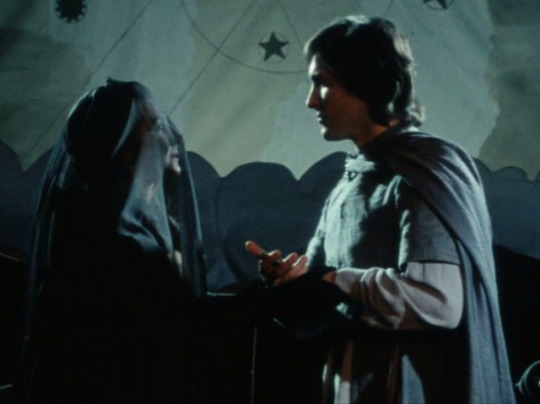
Trollflöjten (The Magic Flute) | Ingmar Bergman | 1975
Birgit Nordin, Josef Köstlinger
#Birgit Nordin#Josef Köstlinger#Ingmar Bergman#Bergman#Trollflöjten#The Magic Flute#Mozart#1975#BF2017
36 notes
·
View notes
Photo

Trollflöjten (The Magic Flute) | Ingmar Bergman | 1975
(Irma Urrila), Birgit Nordin
19 notes
·
View notes